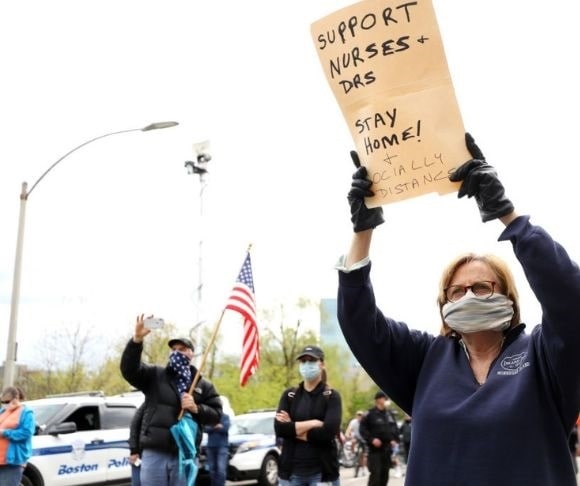According to the annual U.N. report “The State of Food Security and Nutrition in the World,” between 118 million and 161 million more people starved in 2020 than the previous year. The report identifies the COVID-19 pandemic as a significant factor in this massive increase in starvation, and the hardest-hit regions were South Asia and Africa.
About 10% of the world population starved in 2020, setting back the target of eradicating world hunger significantly. According to the U.N. Department of Economic and Social Affairs, “the COVID-19 pandemic, and the measures to restrain it have dramatically magnified and increased these challenges [of ending world hunger and malnutrition in all its forms by 2030].”
The U.N. projects that 660 million people will still starve in 2030, up 30 million from previous estimates due to the long-term effects of the recent lockdowns. Thus, the total impact of lockdowns will mount to more than a quarter-billion extra hungry people over the next nine years. The brunt of the harm will be carried by the most impoverished people of the world’s poorest nations, especially in Africa.
Inflation and Political Conflicts
As documented previously by Liberty Nation, the self-inflicted economic downturn and corresponding inflation have driven up food prices and put a strain on food security, especially in developing countries. The report timely states that “economic recessions that drive up inflation and lead to sharp increases in food prices tend to exacerbate the risk of political unrest, as witnessed in 2007–2008 when food riots broke out in more than 50 countries.” This prediction has already been proven correct by the recent uprising in Cuba.
 Even in the early stages of the pandemic, when the risks of COVID-19 had been sufficiently measured, people who were critical of prolonged lockdowns pointed out that they could be more harmful than the virus. In March 2020, President Donald Trump said that “we cannot let the cure be worse than the problem itself.” Today, the U.N. report vindicates these early critics. The self-inflicted economic downturn worldwide may have killed more people than the virus and plummeted millions more into abject poverty.
Even in the early stages of the pandemic, when the risks of COVID-19 had been sufficiently measured, people who were critical of prolonged lockdowns pointed out that they could be more harmful than the virus. In March 2020, President Donald Trump said that “we cannot let the cure be worse than the problem itself.” Today, the U.N. report vindicates these early critics. The self-inflicted economic downturn worldwide may have killed more people than the virus and plummeted millions more into abject poverty.
Reckoning?
Will politicians correct their policies and change their attitudes toward actions that devastate the economy and hurt the dispossessed? There is little to indicate any form of reckoning. The U.N. report has received little attention from the media. Worse, the word “lockdown” is mentioned only eight times, while “climate” is mentioned 409 times in the report. The average politician will find ample grounds to use the report as justification for extreme climate action, further damaging the economy and putting the poor at even greater risk of going hungry.
~
Read more from Caroline Adana.




